
Groundings
Devyn Springer
Groundings is a place where organizing, theory, and history come in contact with dialogue, experience, and storytelling. It's where the past meets the present, and political education happens. The title "Groundings" is in honor of the revolutionary educator Walter Rodney, whose concept of "groundings" as a form of radical, political, and communal education inspires the conversations on this podcast. Groundings: we sit, we listen, we talk, we share, and we learn.
- 1 hour 7 minutesThe Panthers & Armed Struggle
This episode was recorded in the first week of August, 2024.
Dr. Gerald Horne discusses his new book, "Armed Struggle: Panthers and Communists, Black Nationalists and Liberals in southern California, Through the Sixties and Seventies."
Please forgive the minor audio issues here and there.
Onyesonwu Chatoyer joins as a co-host .
23 November 2024, 4:32 am - 1 hour 42 minutesThe Carribean, Haiti, and U.S. Imperialsm
Activist and professor Tamanisha John joins Musa and Erica to discuss U.S. and Western imperialism in the Caribbean, the U.S.-backed invasion of Haiti by Kenyan forces, and the genocidal U.S. blockade of Cuba.
The Walter Rodney speech can be found in full here.
Check out Liberation Through Reading here.
30 August 2024, 10:16 pm - 45 minutes 20 secondsThe Legacy of Baba Masai Ehehosi
Activist, journalist, and lawyer Anoa Changa joins to talk about her father, Black Liberation Army (BLA) member and former political prisoner Baba Masai Ehehosi, who transitioned on April 1, 2024. The conversation touches Baba Masai's lifelong commitment to Black liberation, sovereignty, freeing political prisoners, and the abolition of the prison-industrial complex. Anoa shares personal reflections on her father's impact and experiences on life and activism, as well as his influence within organizations like Critical Resistance, The Jericho Movement for Political Prisoners, and the Republic of New Afrika.
Listeners will gain insight into Baba Masai's enduring dedication to justice, his role in shaping movements against political repression, and his advocacy for prisoners' rights. We talk about the examples he set in his actions, the importance of inter-generational knowledge community, and how we can continue to honor and uplift his legacy through our organizing.
"Masai worked for the liberation of his people for over 50 years, and held a profound presence in the multiple organizations he was in. A co-defendant of Safiyah Bukhari captured by police in 1973 as a BLA member, Masai began working with the American Friends Services Committee (AFSC) and was staff of the AFSC’s Criminal Justice Program in Newark, NJ after being released from 14 years of prison in Virginia. At AFSC, Masai worked to close security housing units and end torture against imprisoned people through AFSC’s Prison Watch Program. At the time of his passing, Masai was also the current Co-Minister of Information for the Provisional Government of the Republic of New Afrika, an advisory board member ofThe Jericho Movementworking on the Jericho Medical Project for both state and federal prisoners, and was supporting the Prison and Gang Program of Al-Ummah and the Imam Jamil (Al-Amin) Action Network." — Critical Resistance
You can read more about Baba Masai here.
You can find Anoa here.
You can find the Jericho Movement for Political Prisoners here.
24 August 2024, 12:29 am - 1 hour 27 minutesThe Jericho Movement for Political PrisonersPolitical organizer, community worker, and former political prisoner Jihad Abdulmumit discusses his life, and the Jericho Movement for Political Prisoners.21 June 2024, 5:27 pm
- 1 hour 10 minutesThe Palestinian Prisoner Solidarity Network
Hussein Al-Rahman Samidoun Palestinian Prisoner Solidarity Network discusses the struggle for Palestinian prisoners, some of the resistance tactics imprisoned Palestinians have used, and the importance of uplifting Palestinian prisoners. They also discuss the case of popular Palestinians figure Walid Daqqa, who wrote the episode's opening story, "Uncle, Give Me A Cigarette," read by comrade Bisan.
Learn more about how you can support Samidoun here.
Check out the Palestinian Youth Movement here.
Read "Uncle, Give Me A Cigarette" here.
Support the podcast at Patreon.com/HalfAtlanta or by purchasing a copy of Alive & Paranoid for an incarcerated comrade.
28 April 2024, 7:31 pm - 1 hour 38 minutesThe Nonprofit Industrial Complex
How did we get to an entire grassroots "industry" dominated by billionaire philanthropists? How do they influence and politically limit the "organizing", activism, and advocacy that thousands of people engage in? And most importantly, how does the Nonprofit Industrial Complex act as a force of counter-insurgency against the working, organizing masses?
These are just a handful of important questions that Hiram Rivera, Executive Director at the Community Resource Hub for Safety & Accountability answers in his conversation with co-hosts Erica Caines and Musa Springer.
Intro/Outro Music: "Black History Year" prod. by Epik The Dawn.
8 March 2024, 12:27 am - 19 minutes 49 seconds'The Movement Underestimates Fascism' - Gerald Horne
The goat 🐐 himself Dr. Gerald Horne joined me for a special bonus episode of the groundings podcast. We discuss the current state of global politics, imperialism in crisis, the potential for a new multipolar world,,growing contradictions and splits among European colonizers,,and the rising fascism across the west.
He also answers some questions submitted by Patreon subscribers! If you enjoyed this 'bonus' episode, consider checking out our Patreon at Patreon.com/Halfatlanta, where more of these special episodes are posted every month, and where subscribers can submit questions to podcast episodes.
Tune in, let me know you're thoughts, and share + rate the episode 5 stars if you enjoyed it.
20 January 2024, 7:35 pm - 1 hour 14 minutesThe Artists Against Apartheid
This is audio from a panel discussion about the role of artists against imperialism and apartheid, that took place on November 29, 2023 in Atlanta, GA. Our focus was on the genocide unfolding in Palestine, however the topic spans many relevant points related to art, revolutionary movements, and more.
We expected about 40 people to show up, and instead nearly 100 did, and we had people sitting on the floors, in people's laps, and even 4 rows of chairs outside the room in the hallway listening.
The panel was hosted by WRFG, Artists Against Apartheid, Atlanta Radical Art Collective, and the Black Alliance for Peace Atlanta. The audio has been lightly edited for time purposes, and to make it a better listening experience.
We opened up with a series of readings from poets, which I unfortunately had to condense due to time constraints. If yall would like a 'bonus' episode with the full poetry readings, let me know.
Poets: Stephen Foster Smith, W.J. Lofton, Aurielle Marie
Panelists: Lulu Ali Amar, Umaymah, Rozina Shiraz Gilani, Musa Springer, Jasmine Nicole Williams (moderator)
Enjoy!
26 December 2023, 5:39 pm - 4 minutes 43 secondsthe apocalypse26 December 2023, 3:00 pm
- 1 hour 34 minutesThe Framing of Leonard Peltier
Nick joins the show to provide a comprehensive and riveting breakdown of the struggles faced by Leonard Peltier, one of the longest held political prisoners in the world, incarcerated for almost five decades. We dive into the history of the American Indian Movement (AIM), the blood counter-insurgency war waged by the U.S. government against AIM, the critical implications of Peltier's case, and the broader context of Indigenous resistance in the United States.
In a recent article, Nick writes: "The way Leonard Peltier tells it, he was a criminal the day he was born — but not by choice. The seventy-eight-year-old Anishinaabe and Dakota elder says his “aboriginal sin” was being born Indian in a country founded on Indians’ forced disappearance."
Nick Estes is an Indigenous organizer, journalist, and historian, and a citizen of the Lower Brule Sioux Tribe. He is a co-founder of The Red Nation and Red Media, and the author of Our History Is the Future: Standing Rock Versus the Dakota Access Pipeline, and the Long Tradition of Indigenous Resistance.
Check out the International Leonard Peltier Defense Committee and get involved here.
Consider supporting the Groundings Podcast at Patreon.com/HalfAtlanta.
23 July 2023, 4:22 pm - 1 hour 4 minutesThe COINTELPRO war
In this episode of the Groundings podcast, host Musa Springer talks with Dr. Akinyele Umoja, a scholar, activist, and author, about the notorious COINTELPRO program. This program was led by the FBI and local police departments, and was an all-out war on Black organizers. This episode delves into the history, consequences, and the struggle led by Black organizers to expose the violent program.
Dr. Umoja provides a comprehensive understanding of the COINTELPRO program, its inception, and first-hand account of its impact on Black liberation movements in the US. The episode begins with a discussion about Assata Shakur, a prominent figure within the Black Panther Party and the Black Liberation Army, and her experiences with COINTELPRO.
Dr. Umoja shares his insights on the counterintelligence and counterinsurgency tactics used by the FBI to disrupt and neutralize Black nationalist movements, and how these tactics are relevant and still in use today. He also discusses the discovery of the COINTELPRO program and the subsequent congressional hearings that confirmed its existence.
27 June 2023, 4:55 pm - More Episodes? Get the App
Your feedback is valuable to us. Should you encounter any bugs, glitches, lack of functionality or other problems, please email us on [email protected] or join Moon.FM Telegram Group where you can talk directly to the dev team who are happy to answer any queries.
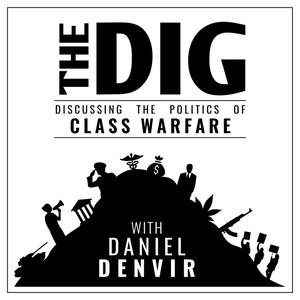 The Dig
The Dig
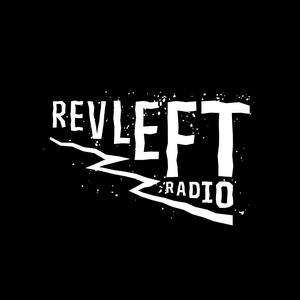 Revolutionary Left Radio
Revolutionary Left Radio
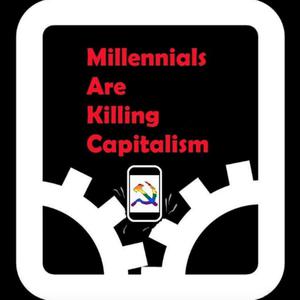 Millennials Are Killing Capitalism
Millennials Are Killing Capitalism
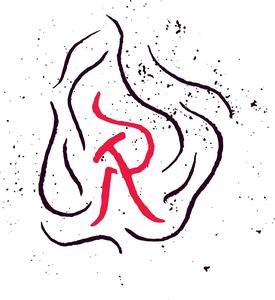 Red Menace
Red Menace
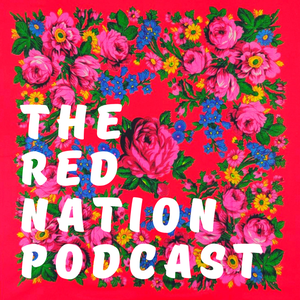 The Red Nation Podcast
The Red Nation Podcast
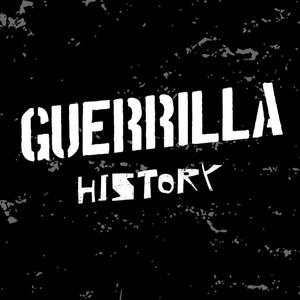 Guerrilla History
Guerrilla History